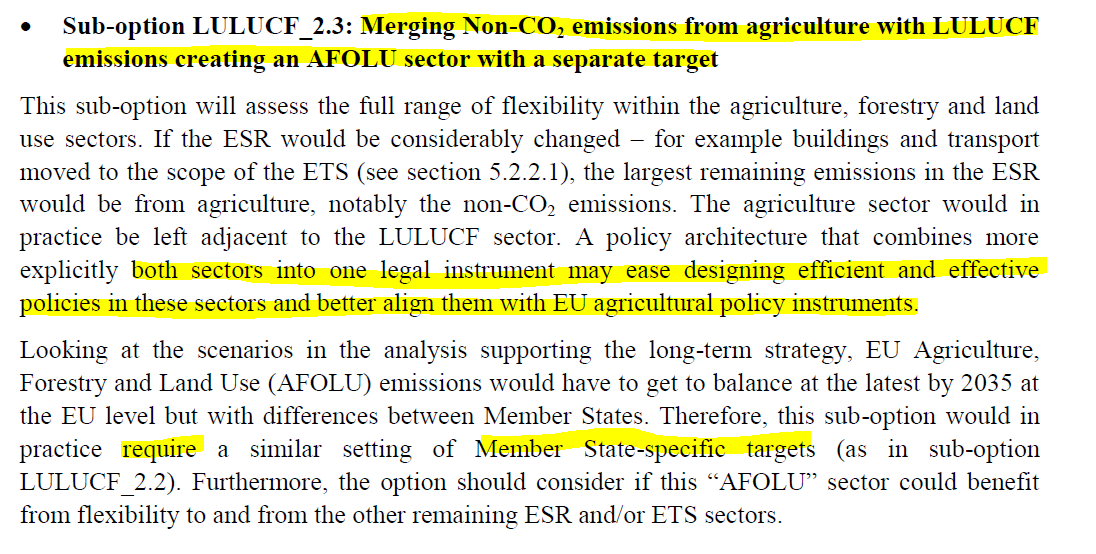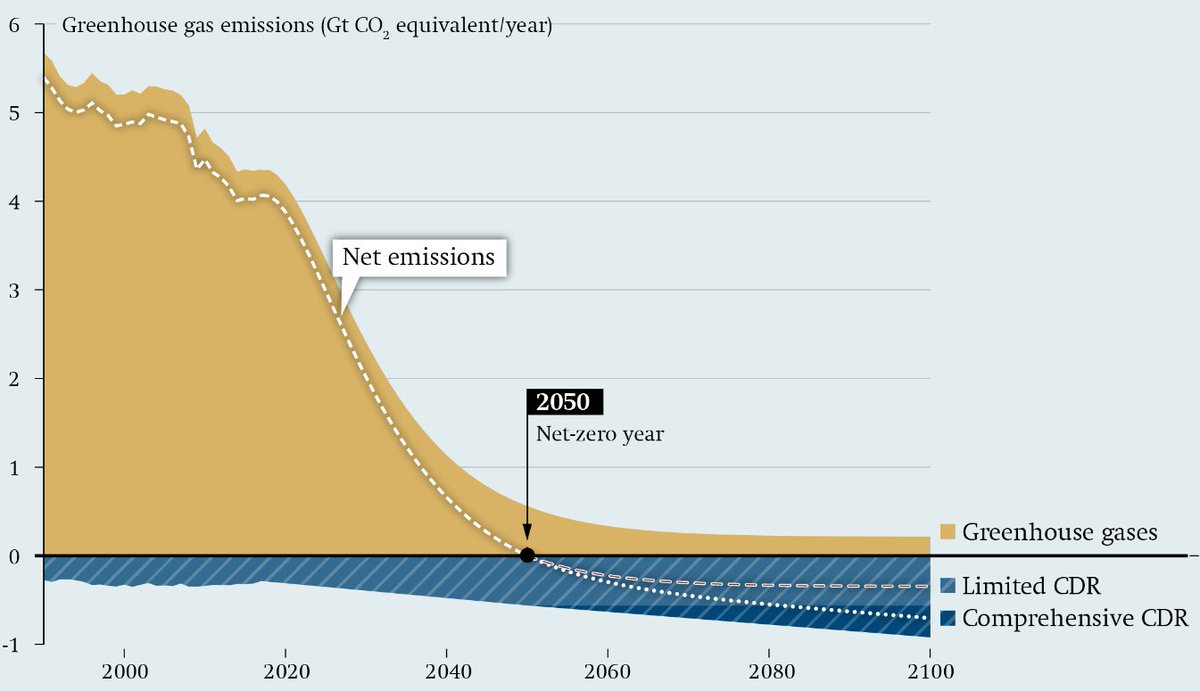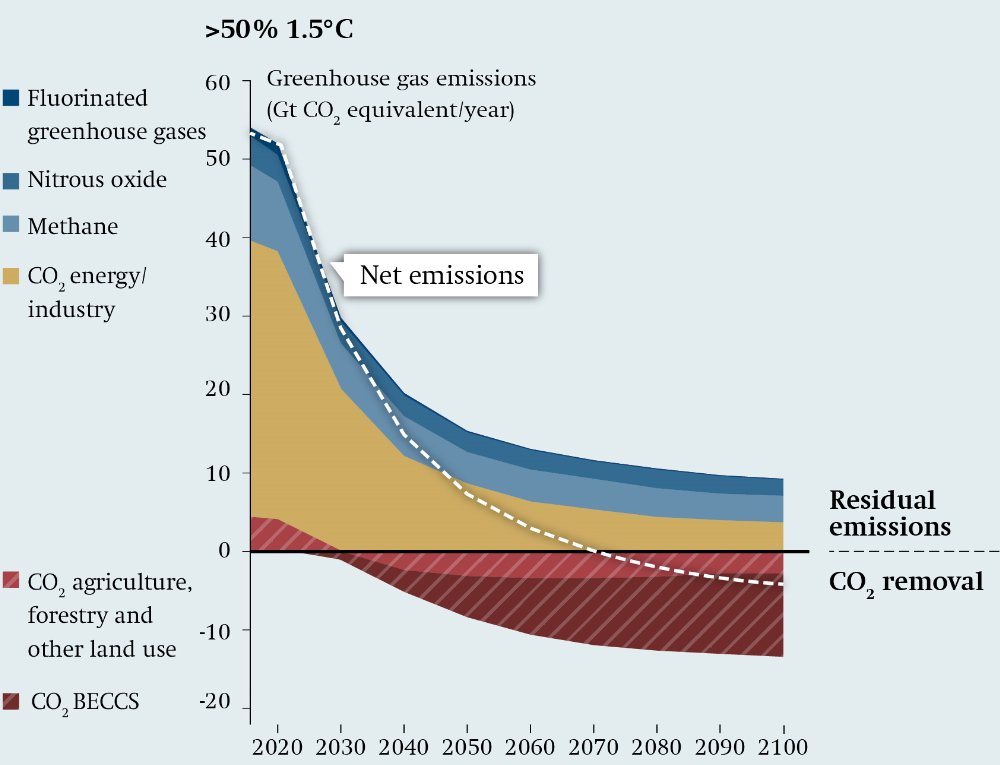
Good that Fridays for Future activists start dealing more and more with the nitty-gritty details of EU #climate policymaking. But with several factual errors and questionable claims in this article, they are risking their credibility.
A short thread [1/n] #EUClimateLaw
A short thread [1/n] #EUClimateLaw
https://twitter.com/GretaThunberg/status/1312793609763254273
You can of course criticize EU #climate policy for not being ambitious enough, but claiming that "the EU is cheating with numbers" needs to be backed up with very strong arguments.
medium.com/@GretaThunberg…
[2/n] #EUClimateLaw
medium.com/@GretaThunberg…
[2/n] #EUClimateLaw
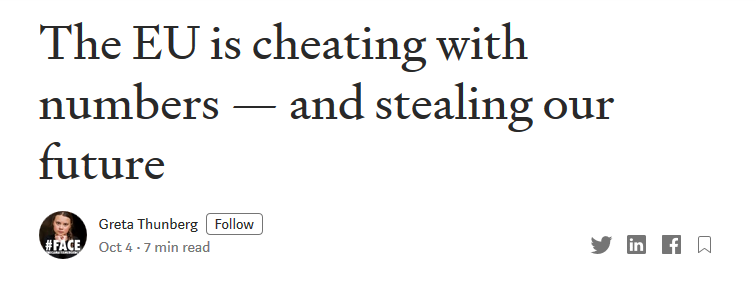
Let's start with FFF authors' core argument that EU is cheating because the 55% are counted from 1990 onwards not from 2018
The EU has never claimed otherwise. 1990 has always been the base year for EU headline #climate targets (as for many others in #UNFCCC)
[3/n] #EUClimateLaw
The EU has never claimed otherwise. 1990 has always been the base year for EU headline #climate targets (as for many others in #UNFCCC)
[3/n] #EUClimateLaw
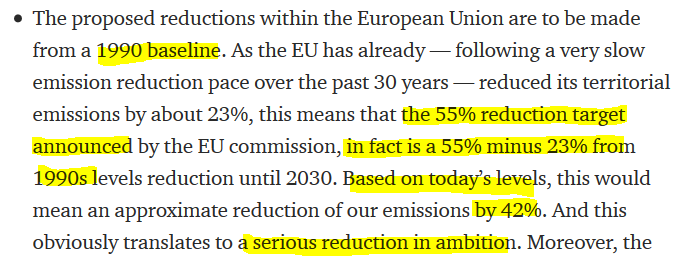
The 2nd argument is more credible. Not including these emission sources is certainly problematic. But it's not 'cheating' by EU, it's standard #UNFCCC accounting. So why blame the EU?
(plus, consumption-based accounting isn't straightforward, ask @Peters_Glen)
[4/n] #EUClimateLaw
(plus, consumption-based accounting isn't straightforward, ask @Peters_Glen)
[4/n] #EUClimateLaw

3rd one is tricky, but nevertheless incorrect to claim that including sinks reduces effort >5 % points, even if Bert Metz said so euractiv.com/section/climat…
3 wks ago, I myself miscalculated initially. Effect is ~2%, as now often reported
[5/n] #EUclimatelaw
3 wks ago, I myself miscalculated initially. Effect is ~2%, as now often reported
https://twitter.com/Oliver_Geden/status/1305559281035599874
[5/n] #EUclimatelaw
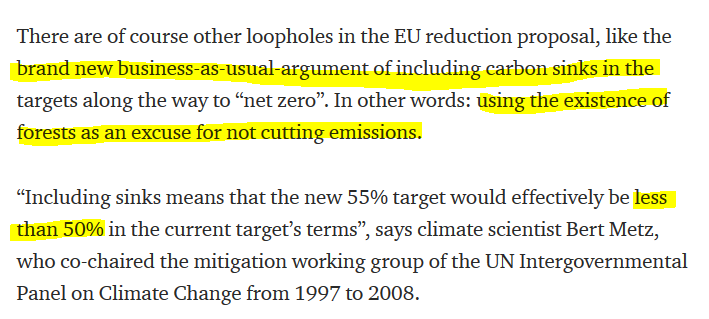
To conclude: it's legitimate criticizing EU #climate policy, but if you want any serious response from policymakers, invest more effort in fact checking
With such a huge follower base (& RTs) there comes a great deal of responsibility
medium.com/@GretaThunberg…
[end] #EUclimatelaw
With such a huge follower base (& RTs) there comes a great deal of responsibility
medium.com/@GretaThunberg…
[end] #EUclimatelaw
An addendum: @GretaThunberg et al. now made a change to the original piece, adding the correct number for including sinks in EU target calculation (2%), but keeping the questionable one (5%)
medium.com/@GretaThunberg…
[add 1] #EUClimateLaw
medium.com/@GretaThunberg…
[add 1] #EUClimateLaw

• • •
Missing some Tweet in this thread? You can try to
force a refresh






